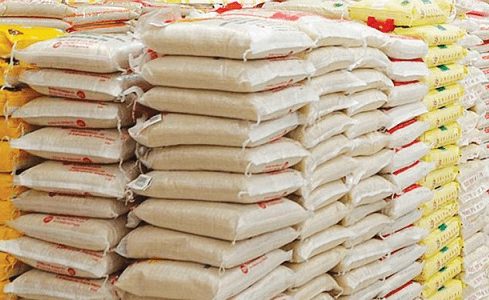The rice market in Nigeria and the West African region has experienced a significant downturn in recent weeks, marked by a substantial drop in prices and a palpable decrease in consumer demand. This decline has been attributed to a confluence of factors, most notably, a pervasive rumor regarding contaminated rice and an oversupply of the commodity, particularly from India. The rumor, which originated via voice messages and social media platforms, alleged that numerous deaths had occurred after consuming rice purchased in border towns like Badagry, Lagos State, and Idiroko, Ogun State. Despite official debunking by authorities such as the Nigeria Customs Service, the rumor spread rapidly, triggering widespread consumer apprehension and a subsequent boycott of rice, leading to a noticeable price reduction. The price of a 50kg bag of rice, which averaged N58,000 in April, has fallen to around N54,000 in May, with prices even lower in border areas.
The dissemination of the false information through social media channels highlights the potent influence of such platforms in shaping public perception and consumer behavior. The rapid and widespread dissemination of the rumor, despite its lack of factual basis, underscores the challenges in combating misinformation in the digital age. The incident also reveals the vulnerability of markets to unsubstantiated claims and the potential for significant economic disruption resulting from such unsubstantiated fears. Rice sellers in affected areas, faced with declining sales and mounting losses, have taken to social media to counter the damaging rumor, releasing videos debunking the claims and assuring the public of the safety of their products. These efforts, however, have had limited success in fully restoring consumer confidence and reversing the downward trend in rice prices.
Beyond the immediate impact of the false information, the rice market has also been significantly affected by broader market forces, particularly an oversupply of the commodity. Reports by S&P Global indicate that West African parboiled rice prices have reached record lows, largely driven by weak demand and a significant influx of imported rice, primarily from India. This oversupply has created a glut in the market, forcing importers and traders to lower prices to remain competitive. Importers in Benin, a major transit point for rice entering Nigeria, have expressed concern over the declining prices, directly linking this trend to falling prices for Indian parboiled rice and the resulting oversupply. The situation is mirrored in other West African countries like Togo, where importers face a similar scenario of abundant supply coupled with stagnant or declining demand.
This oversupply, coupled with the decreased demand in Nigeria following the rice contamination scare, has had a cascading effect on prices throughout the region. The price differential between container and breakbulk freight has narrowed considerably, leading importers to favor smaller volumes shipped in containers. This shift in shipping preference further reflects the subdued demand and the cautious approach taken by importers in the face of market uncertainty. Data from the Agricultural and Processed Food Products Export Development Authority (APEDA) reveals the scale of Indian rice exports to the region, with approximately 4.9 million metric tonnes shipped between April 2024 and January 2025. Benin emerged as the largest importer during this period, followed by Guinea and Ivory Coast. This influx of Indian rice has exacerbated the oversupply issue and contributed to the downward pressure on prices.
Nigeria, being the largest rice market for Benin Republic, plays a crucial role in regional rice dynamics. The country’s continued reliance on illegal rice imports from Benin, despite efforts to promote local rice production, has further complicated the market situation. The falling prices of imported Indian rice through Benin have directly impacted the prices of both imported and locally produced rice within Nigeria. The price of a 50kg bag of imported Indian rice has dropped significantly, while local rice prices have also experienced a substantial decline. This situation presents challenges for local rice farmers, who struggle to compete with the lower prices of imported rice.
The convergence of these factors – the unfounded rumors of contaminated rice, the substantial oversupply of imported rice, and the continued illegal importation into Nigeria – has created a perfect storm in the West African rice market. The resultant price drop, while beneficial to consumers in the short term, poses significant challenges for local producers and importers, raising concerns about the long-term sustainability of the rice market in the region. It also underscores the need for effective communication strategies to counter misinformation and for robust market regulation to address issues of oversupply and illegal importation. The situation necessitates a comprehensive and coordinated approach involving governments, regulatory bodies, and industry stakeholders to restore market stability and ensure the viability of the rice sector in West Africa.














